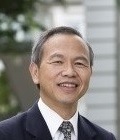Synopsis
According to the statistics of the World Intellectual Property Organization (WIPO), China has in recent years been No. 1 in the world in terms of patent applications and trademark registrations, among others. However, the statistics may not reflect the true situation of technical innovation or industrial activities in China. The “watered IP data” may have several causes, including deep governmental involvement and other non-market elements. In consequence, the current IP system in China has a great number of “artificial components”, including, inter alia, “patent bubbles” and “trademark chaos” that can be indicated by or implied from the statistics of WIPO and relevant governmental agencies in China. In consequence, numerous IP disputes took place and hundreds of thousands judicial cases have been filed in the IP courts or chambers in China.
It is understood that very high cost is needed to support such an IP system from patent or trademark application, examination and invalidation to disputes settlement, together with the IP service industry as such. The IP system may therefore not sustain fairly due to the heavy burden not only for public finance, but also for the industry and society as a whole. It may even turn the IP system upside down, running contrary to its market orientation, and ultimately defeating its institutional goal of promoting innovation and fair competition. Governmental agencies in China, together with the international IP organizations, such as WIPO, shall be alerted to these irrational phenomena and not try to play a role in the IP politics for purpose not inherently supported by the IP law itself. Governmental agencies in China should carefully keep their hands from the place where the “invisible hand” works. The lessons of China in its promotion of IP production may have implications for both developing and developed countries and for international IP organizations as well.
Speaker

Yinliang Liu is currently Professor of Intellectual Property Law, Law School of Peking University and Director of the Science and Technology Law Research Center of Peking University. He got his M.S. and Doctor of Laws both from Peking University. He had been a postdoctoral fellow at the Institute of Advanced Studies of the United Nations University (2001-2002). He had been an associate professor at the Institute of Intellectual Property Law of the China University of Political Science and Law (2003-2009). He joined Peking University Law School in 2009. He has been visiting scholar or professor at the Temple University Law School, Paris I University, Japan Institute of Intellectual Property, Institute of Law of the Academia Sinica, and Toulouse I University in the past years. His fields of research mainly include intellectual property law, patent law, copyright law, international IP law, and biotechnology law, among others. He has published several monographs and more than forty journal articles in these fields.
Chair

Kung-Chung LIU holds an LL.B. and LL.M. from National Taiwan University and a Doctorate from the Ludwig Maximilian Universitaet (University of Munich). He was a Research Fellow at Academia Sinica, Taiwan until 2017. In 2003, he was a Visiting Professor at the Faculty of Law of the National University of Singapore and a Visiting Senior Research Fellow for the IP Academy of Singapore. Professor Liu has served as one of the founding Commissioners of the National Communications Commission in Taiwan between 2006 and 2007. In 2014-15, he was a Visiting Professor at the School of Law, Singapore Management University, and the Founding Director of the Applied Research Centre for Intellectual Assets and the Law in Asia (ARCIALA). In addition, he has been co-appointed Professor at the Renmin University, China (2017), and the Graduate Institute of Technology, Innovation & Intellectual Property Management, National Chengchi University, Taiwan (since 2010).
Programme
2.30pm - Registration
3.00pm – Lecture by Dr. Liu
4.30pm - Q & A
5.00pm - End of Event
Public CPD Points - 1.5 points
This programme is an Accredited CPD Activity under the SILE’s CPD Scheme. Participants who wish to claim CPD Points are reminded that they must comply strictly with the Attendance Policy set out in the CPD Guidelines. This includes signing-in on arrival and signing-out at the conclusion of the activity in the manner required by the organiser, and not being absent from the entire activity for more than 15 minutes. Participants who do not comply with the Attendance Policy will not be able to obtain CPD Points for attending the activity. Please refer to http://www.silecpdcentre.sg for more information.
Click HERE for the newletter and registration link.
Last updated on 12 Jun 2019 .